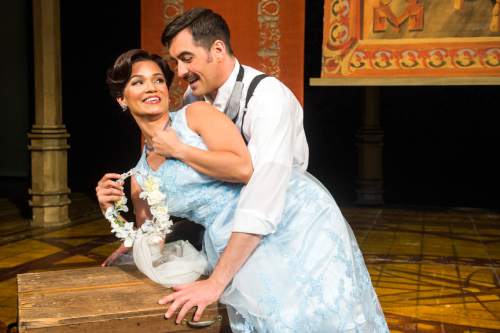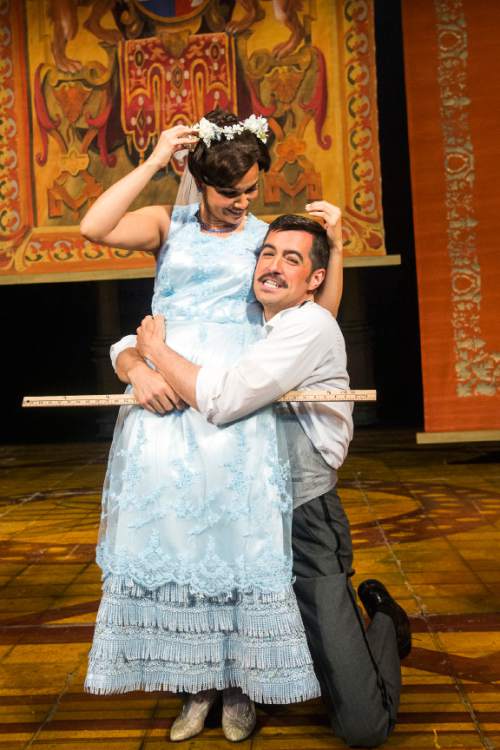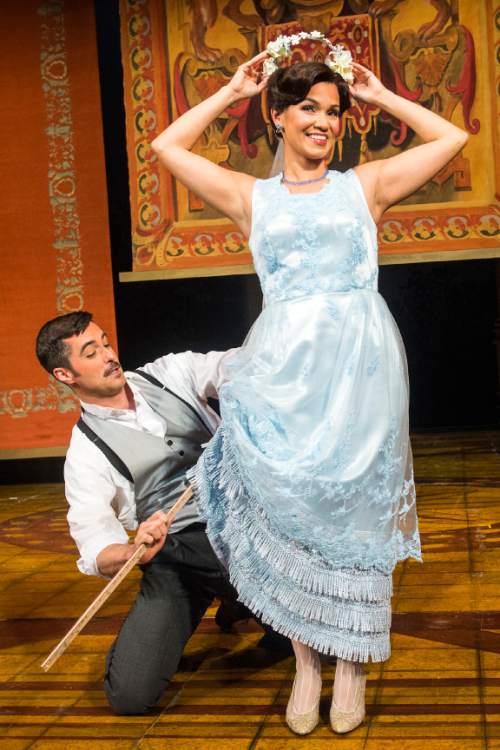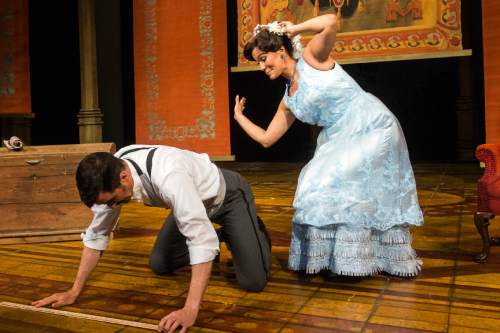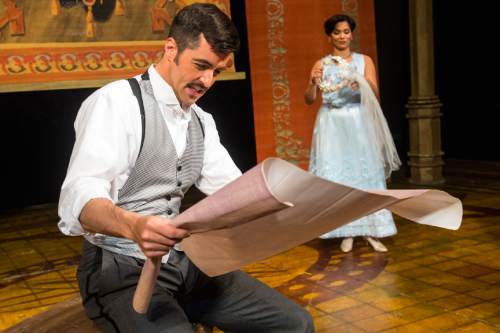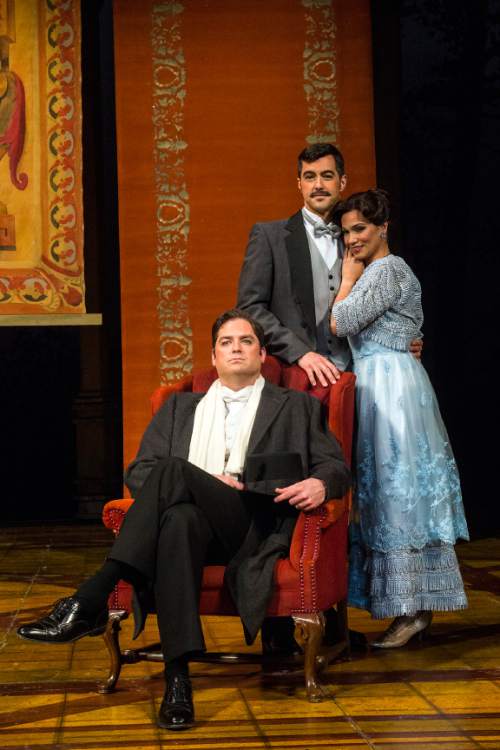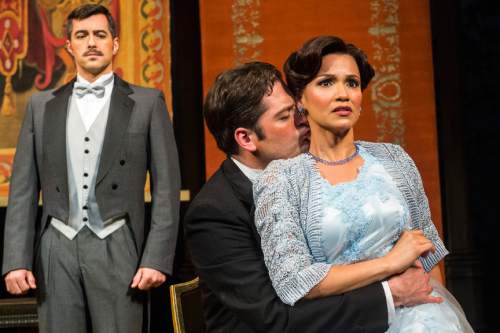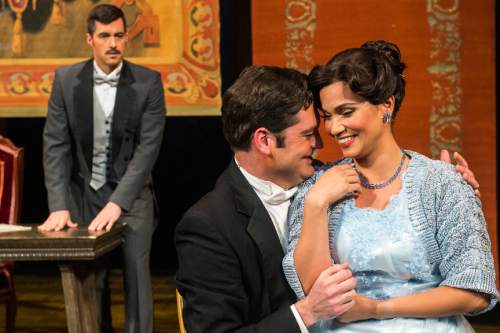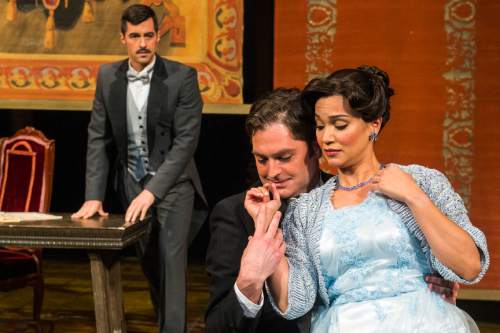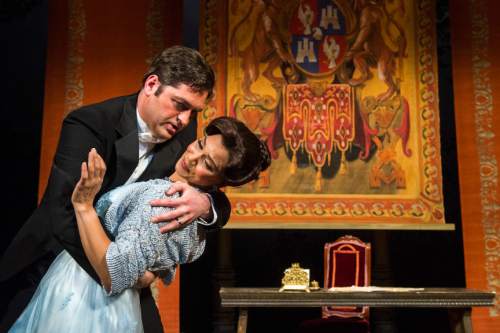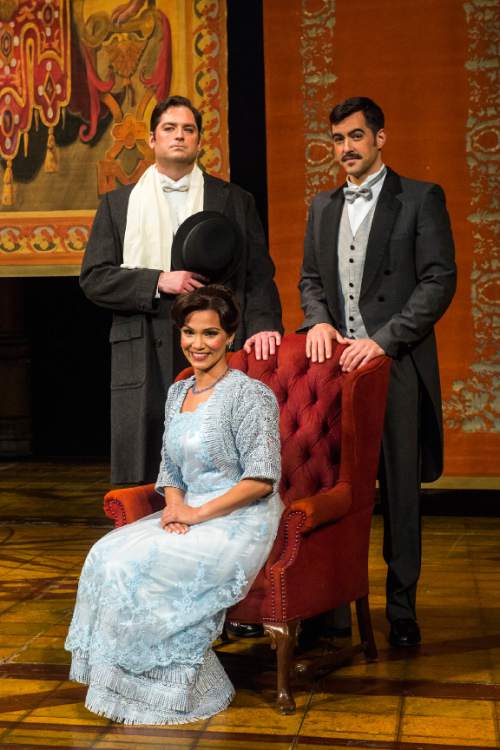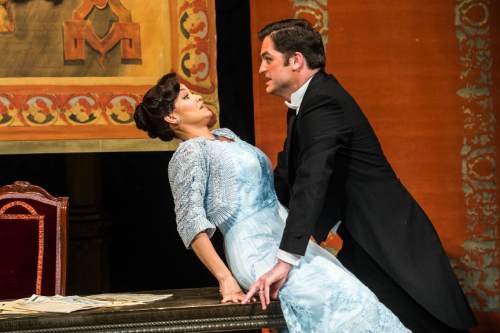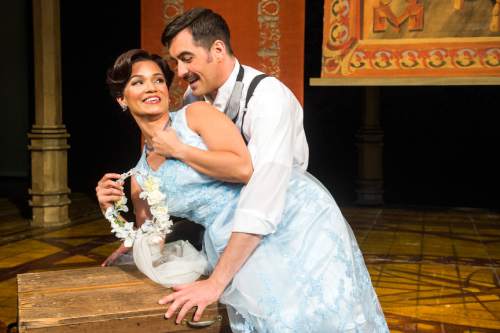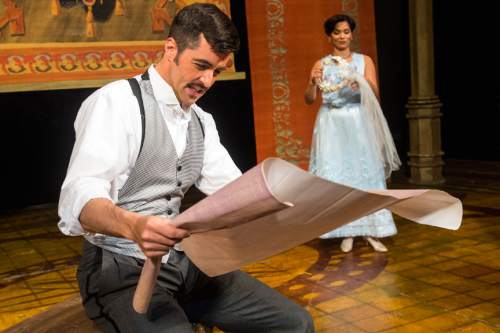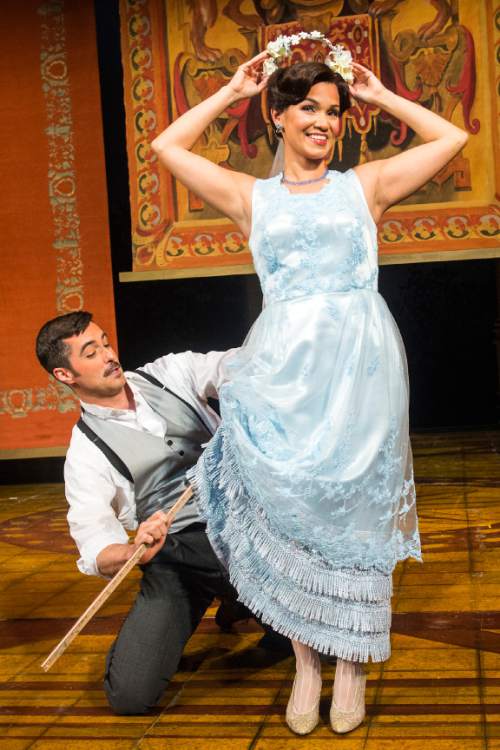This is an archived article that was published on sltrib.com in 2016, and information in the article may be outdated. It is provided only for personal research purposes and may not be reprinted.
And you thought you had a bad boss.
As Mozart's "The Marriage of Figaro" opens, Figaro and Susanna are joyfully preparing for their wedding later that day. Unfortunately, Count Almaviva — in whose palace the couple work as servants — considers it his prerogative to do as he pleases with any woman in his employ.
"It seems so sad that we're still dealing with [sexual harassment in the workplace]," said Gary Thor Wedow, who will conduct Utah Opera's production of "The Marriage of Figaro," opening Saturday. "What women have had to endure over centuries is astounding."
But harassment is just part of the picture on which Mozart and librettist Lorenzo da Ponte were commenting in their 1786 adaptation of Pierre Beaumarchais' controversial play. "What makes 'Figaro' different than just sexual harassment is the class distinctions," said soprano Nicole Heaston, who will portray the countess, Rosina. Heaston and castmates Seth Carico and Zulimar López-Hernández, who play Figaro and Susanna, said they've enjoyed exploring the opera's upstairs-downstairs dynamic together.
The singers predicted that Susan Memmott Allred's new costume designs, which set the opera in 1912 (the same year in which the first episode of the TV series "Downton Abbey" was set), will illuminate those class issues for the audience. For example, Rosina and Susanna have a similar relationship to the one between Lady Mary and her maid, Anna, on the popular British drama. Rosina is not as frosty as Mary, "but how much emotion would she show to Susanna?" Heaston mused. When the countess confides her heartbreak to her maid, she sings of her husband's philandering tendencies but delicately avoids mentioning that Susanna is his latest target; in a scene that López-Hernández said is one of her favorites, Susanna unwittingly witnesses his emotional cruelty later in the opera.
Though Rosina herself is from a wealthy background, her lack of an aristocratic pedigree places her in a similar position to "Downton" chauffeur Tom Branson after he marries Lady Sybil and must navigate new relationships with his boss-turned-father-in-law and with his former co-workers, the singers said. Figaro was a buddy to Rosina and Almaviva in "The Barber of Seville," the first play in Beaumarchais' Figaro trilogy; he even helped them outwit her grumpy old suitor, Dr. Bartolo. In "The Marriage of Figaro," though, the wily barber has become his friend's valet and the rules have changed — at least for Figaro. The valet is keenly aware there are lines he can't cross with Almaviva (even though the count still has the luxury of viewing him as a friend), but because Rosina's social background is more similar to his, the change in their relationship "has got to be more difficult for Figaro to accept," Carico said.
Beyond the sharp social commentary, "The Marriage of Figaro" is "a story about all phases of love," stage director Tara Faircloth said — two hormone-addled teenagers, Cherubino and Barbarina; the newlyweds, Susanna and Figaro; the Almavivas, "who are maybe experiencing the seven-year itch"; and Dr. Bartolo and his housekeeper Marcellina, "who maybe thought the time for romance had passed for them."
"Those stories are probably always timeless," Faircloth said. And there's the music, which she and Wedow agreed is among the best ever written.
"Mozart was so generous — he was like, 'It's OK, I have a million more,' " Faircloth said of the composer's willingness to bestow sublime tunes on even the smallest moments. (Barbarina's lament over a missing pin is perhaps the most famous little jewel.) But as Wedow noted, "Any moment you're at [in this opera] is so glorious. … Orchestras love to play it. Even though it's very difficult, it's very gratifying for them."
Wedow, who conducts Mozart frequently, contrasted "Figaro" with another Mozart-da Ponte masterpiece, "Don Giovanni." The latter opera leaves him physically and mentally exhausted. "But 'Figaro' is so joyous, I could go back into the pit [after a performance] and conduct it again. It's like a battery pack."
Here comes the bride
Utah Opera presents Wolfgang Mozart and Lorenzo da Ponte's "The Marriage of Figaro." The opera is sung in Italian, with Supertitles in English.
When • Opens Saturday, May 7, at 7:30 p.m.; evening performances continue May 9, 11 and 13, with a 2 p.m. matinee May 15
Where • Capitol Theatre, 50 W. 200 South, Salt Lake City
Running time • 3 hours, 15 minutes, including intermission
In a nutshell • Figaro and Susanna deal with a lecherous boss and other annoyances on their wedding day.
Tickets • $
Learn more • Utah Opera principal coach Carol Anderson will give a preview lecture an hour before curtain, and artistic director Christopher McBeth will lead a post-performance Q&A, all in the Capitol Room on the west side of the theater; more background material is posted at utahopera.org/watch-listen-learn/online-learning-courses
A toast to the groom • Eleven Salt Lake City restaurants have created craft cocktails inspired by the opera. Patrons who share photos of their favorite drink on social media have a chance to win opera tickets. See utahopera.org/libations for details.


